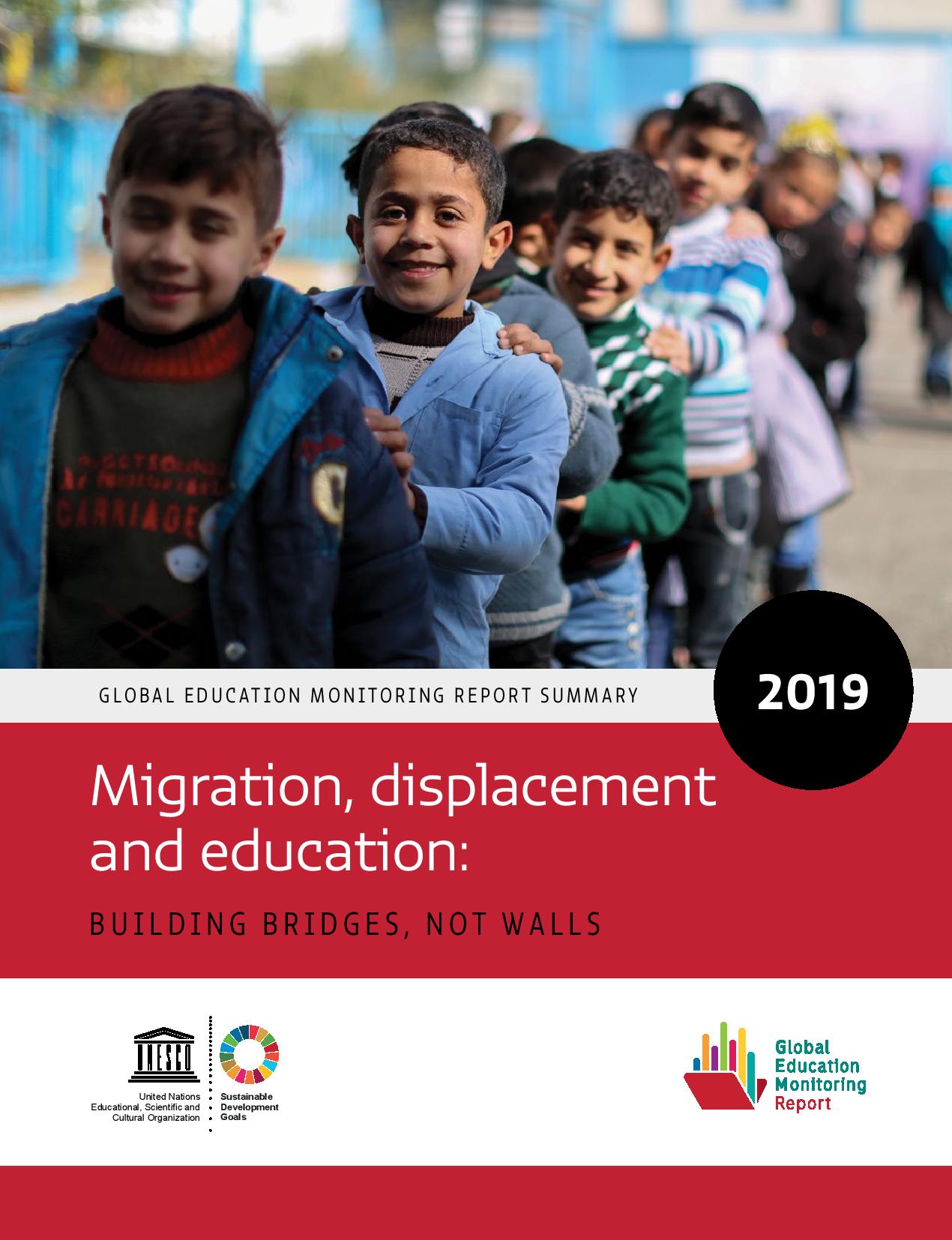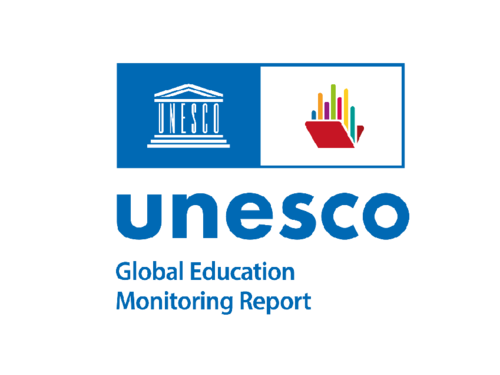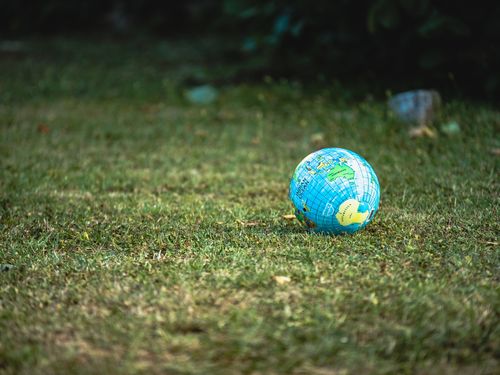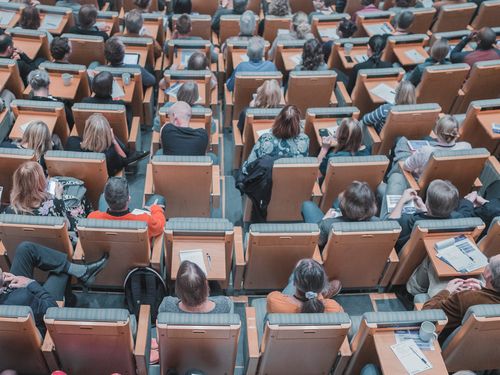Global Education Monitoring Report: Migration, displacement and education: Building bridges, not walls
UNESCO's annual Global Education Monitoring Report assesses and analyzes progress toward Sustainable Development Goal 4: "Ensure inclusive, equitable, and quality education and lifelong learning opportunities for all by 2030."
Global Education Monitoring Report 2019 " Migration, displacement and education".
The current report, which is dedicated to "Migration, Displacement and Education: Building Bridges Not Walls," finds that in the last two years, refugee children and young people have missed a total of 1.5 billion days of school. Due to government restrictions and lack of educational initiatives for children of people with refugee experience as well as migrants, the right to quality education is not guaranteed in a large number of countries. In some countries, inclusion in education systems is even completely waived.
More than half of the world's refugees are under the age of 18. Asylum-seeking children living in camps in countries such as Australia, Hungary, Indonesia, Malaysia, and Mexico are in a precarious social situation and often receive only rudimentary access to education. Rohingya refugees in Bangladesh, Burundian refugees in Tanzania, Karen refugees in Thailand, and many Afghan refugees in Pakistan attend only separate and sometimes unaccredited schools. Language courses serve as an integrative potential for social inclusion and good chances on the labor market. Often, no such services as language courses are offered in the host countries, thus preventing socio-cultural dialogue within the host society.
However, positive developments must also be pointed out. For example, 8 of the 10 countries with the most refugees have made significant progress in integrating people with refugee experience into national education systems, including low-income countries such as Chad, Ethiopia, and Uganda. Canada has the largest share of people with immigrant backgrounds among the seven richest industrialized countries and allows children to acquire basic knowledge about migration and migration experiences starting in second grade. Ireland, with the highest proportion of first-generation immigrants in the European Union, funded an education strategy focused on diversity and people of different backgrounds in the midst of a financial crisis.
The key demands of UNESCO's 2019 Global Education Monitoring Report are:
- Ensure the protection of the right to education of migrants and refugees,
- ensure the inclusion of migrants and refugees in national education systems,
- understand and plan for the educational needs of migrants and refugees,
- address migration and refugee issues in the classroom to reduce prejudice,
- prepare teachers of migrants and refugees for diversity,
- to use the potential of migrants and refugees,
- to support the education of migrants and refugees in humanitarian and development aid.
Background
In September 2015, the United Nations adopted Sustainable Development Goals (SDGs) and committed to implementing them by 2030. Goal 4, "By 2030, ensure inclusive, equitable and quality education for all and promote lifelong learning opportunities," is the source of the global education agenda for 2016 to 2030. UNESCO coordinates the implementation and is responsible for monitoring.


![[Translate to EN:] [Translate to EN:]](/fileadmin/_processed_/9/6/csm_education_2030_logo-page-001_7a6aecad7b.jpg)




![[Translate to EN:] Publikationen zu Bildung 2030](/fileadmin/_processed_/8/a/csm_Publikationen3_af52a7496d.jpg)